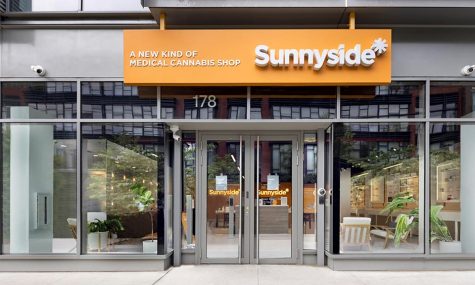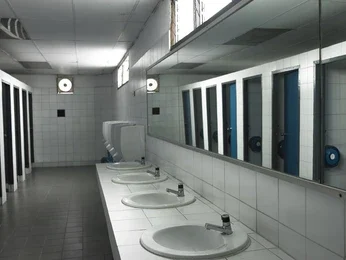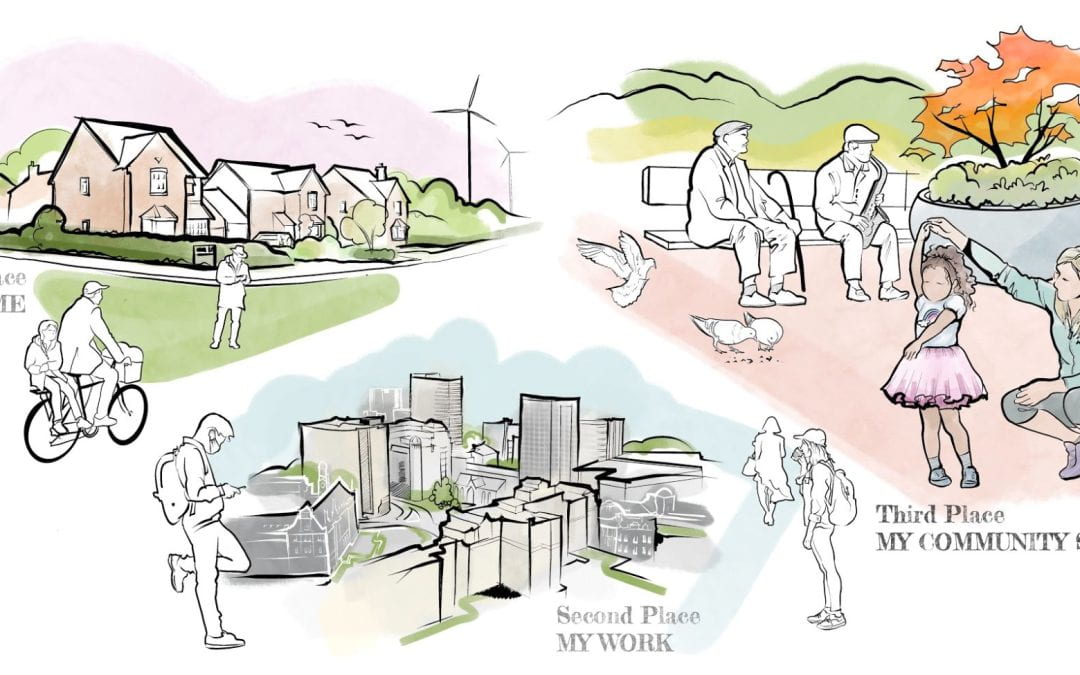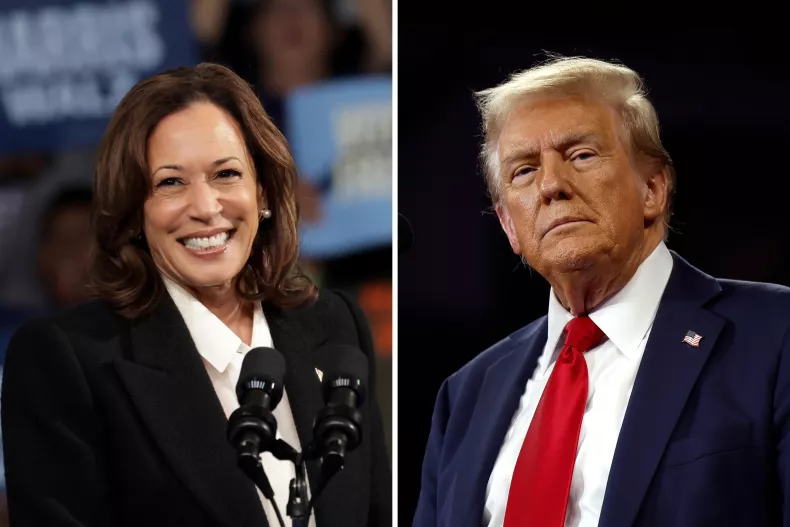Marijuana Dispensaries: What “Opting In” Means for Hastings
December 21, 2021
Since the legalization of marijuana in New York, the question of the Rivertowns opening dispensaries and consumption lounges has caused much dispute. A “dispensary“ is simply a store that sells cannabis, while a “consumption lounge“ is a communal site where residents can gather to use the drug in each other’s company.
The Marijuana Regulation and Taxation Act (MRTA) came into effect in New York in March 2021, following years of studies regarding medical and recreational use of cannabis as well as new data on the social justice aspect of this issue. The law permits the use of cannabis, in specific amounts, for adults 21 or older, and puts municipalities in the immediate position of either having dispensaries and lounges or opting out. The latter choice is available because the regulations for such facilities are still in developmental stages.

One of the prominent intents of this legislative decision was to focus on social equity, as marijuana possession charges fall disproportionately on people of color. To address this, criminal records of those who were wrongfully incarcerated are in the process of being expunged; the law also indicates that a percentage of the tax revenue from dispensaries will be donated to funds for marginalized communities who were negatively affected by criminalization. An additional goal of this law is to favor minority applicants for retail licensing of marijuana, although the policy will not directly enforce this initiative.
The thought of opening dispensaries has brought about several concerns regarding impacts on Hastings specifically. For one, opting out of the dispensary is currently a temporary decision, while opting in is permanent. For municipalities across New York, the deadline for deciding whether to opt out of stores and lounges is December 31, 2021.
During a November 16th meeting between Hastings Mayor Nikola Armacost and the Board of Trustees, the group informally decided to opt in for a dispensary, with a 3-2 vote in favor of allowing a store. Despite the majority vote for a dispensary, only Trustee Morgan Fleisig advocated for a consumption lounge as well, while the other four Board members opposed the idea. The vote was not an official decision but more of an opportunity to share opinions on the topic. During this informal vote, Trustee Tom Drake felt that “the process was very unclear and happened too quickly.”

Some on the Board of Trustees, as well as various residents in the town, have voiced their endorsement for dispensaries with the belief that this addition will assist in the process of reducing the cannabis stigma, bring economic advantages, and demonstrate that our affluent suburb supports policies that make drug laws fairer for everyone. At the same time, others have expressed worries in relation to the effects on minors and have also refuted the social justice argument. Some argue that Hastings is simply not prepared for such a facility, since regulations of how the dispensary will be advertised or how the minority ownership will be encouraged have not been implemented.
Mayor Armacost revealed her avid support for a marijuana store, as she believes “opting out would be the anomaly.”
“The state gave the opportunity to municipalities to opt out, but the clear signal was, ‘we’re passing this law, we think it’s legal’ and the assumption is that you also think it’s legal,” explained the mayor.
While this was her initial interpretation of the law, Mayor Armacost used new data regarding the effects of a dispensary in other municipalities in order to explain her support for opting in.
“The data [the Board] was sent was very conflicting,” she explained, “so I called the mayors and selectmen in Massachusetts to ask them about their experiences.” Amidst this research, Mayor Armacost felt “more comfortable that the negative effects that people fear wouldn’t be experienced [in Hastings], but [she] couldn’t find a lot of examples of lounges.” She revealed that in Massachusetts, “people were worried about crime, property values going down, the economic health of the municipality being negatively affected, youth use, driving while high, and all of [the mayors and selectmen] told [her] that those fears were unfounded.”
Feeling reassured by this research, Mayor Armacost became more secure of in her desire to opt in for a dispensary and out of a lounge. While she disagrees with the fully opt-out group, Mayor Armacost acknowledges that a dispensary may be a foreign idea to many and that “people are afraid of the unknown, which is a very natural feeling.”
As one of the major concerns for those who wish to opt out revolves around youth use, Mayor Armacost clarified that “the message is very clear—this is not for kids,” and noted that “just as the message is clear regarding liquor stores, it will be equally clear on dispensaries.”
Contrary to this, Trustee Drake expressed being overwhelmed by the number of residents reaching out to the Board, and he feels like he and the other trustees are ignoring the urge from the town to opt out. He fears that due to the ambiguity of the regulations thus far, there could be negative repercussions if Hastings decides to go through with a dispensary. “We may face lawsuits in the future if the regulations aren’t what we were hoping they were going to be,” Drake explained.
Likewise, Dr. Fred Muench, a clinical psychologist and president of Partnership to End Addiction, is concerned that “the New York State regulations on things like advertising, zoning, dosage, potency, etc. are not really set yet.” With full support towards legalization and decriminalization, Dr. Muench believes that the issue has become more centered around commercialization, which he says inherently has no correlation with the social justice argument. He noted that “legalization has helped reduce arrest rates, but there is still a massive discrepancy between people of color and white people in terms of marijuana arrests,” and that greater action must be taken to address the racist history that has been so ingrained into our society. Dr. Muench claimed that while we should erase criminal records related to possession and exonerate those wrongfully incriminated, the act of actually promoting the drug and using it for profit does not support the social equity aspect. Conversely, he argued, it changes the intent of getting a dispensary. By masking commercialization through highlighting the struggles of marginalized communities affected by criminalization, the entire goal seems performative, rather than demonstrating a genuine desire to help fix this issue.
Dr. Muench also expressed his disapproval in how the situation is being dealt with, as only the Mayor and the Board have a say in the ultimate decision. He recalled the town being surveyed for both the decisions about the turf at Reynolds Field and the water tower. He feels that since the dispensary would be such an impactful addition, town members should have had some sort of input.
Hastings resident Sam Effron appreciates the supposed economic advantages a dispensary would bring. He emphasized that 3% of the excise tax on cannabis will go directly to our town, saying that “if you look at other states with dispensaries in them, that could be a significant amount of money.” Effron also understands that many adults use marijuana medicinally and recreationally, and he believes “this type of local business would attract more foot traffic to town, which would also benefit other local merchants.” When asked to address the concern of youth use, Effron feels that Hastings already has an extremely high use rate, doubting that further impacts would occur. He believes that this argument “excludes the role of parents and schools,” as both of these factors should help control minor use.
Regardless of the ongoing contention, the Board’s formal vote will take place on December 21, officially deciding whether or not Hastings will get a dispensary. Although this date seems to work for the opt-in party, meeting the state deadline, those who wish to opt out feel that the date is rushed. Reiterating the uncertainty around how the New York State regulations will play out, Trustee Drake posed the question: “Why should we take a leap of faith that New York State will get this right and opt in right now?”

















